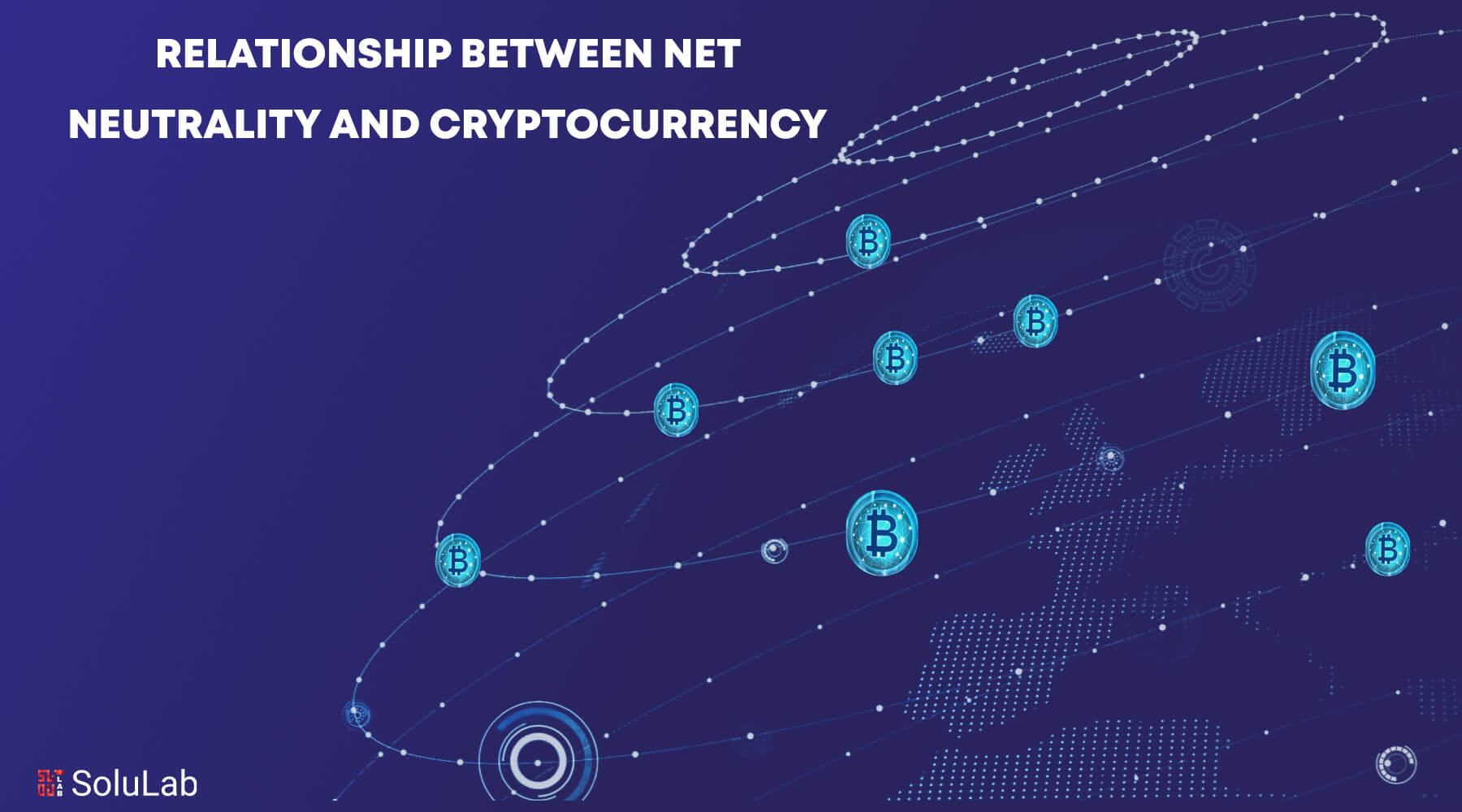
Net neutrality and bitcoin are two potent ideas that converge in the huge digital space where the virtual and physical collide. Many are questioning the significance of net neutrality concepts in light of the emergence of decentralized technology such as cryptocurrencies. Let’s take a constructive look at this connection. Discover how these technology mainstays interact intricately to navigate the digital world with grace and balance.
What Is Net Neutrality?
Network neutrality refers to the idea that all data on the internet should be handled similarly by all businesses. These include internet service providers (ISPs) and governments, regardless of content, user, platform, application, or device. Thus, net neutrality requires service providers to make sure that consumer’s access to material should not be restricted or slowed down. Net neutrality regulations will impact many areas of the internet and online companies. For example, one source of worry is how it may impact cryptocurrency’s future.
What’s in store for net neutrality?
Before anything can go ahead – either way – the FCC’s litigation must be settled before net neutrality rules can be repealed completely. It is also conceivable that congressional Democrats will gain enough votes to block the proposal via the CRA process.
However, the move would still need to pass another difficult barrier by obtaining enough votes in the House and the Senate. For now, all we can do is wait – and contact our legislators to ask them to preserve the Internet.
What is Cryptocurrency?
Cryptocurrency promotes a system in which financial inclusion is a reality rather than merely an idea, because of its decentralized structure, cryptocurrency-free money from conventional limitations. It is a lighthouse of financial independence, enabling people all around the world to manage their assets and conduct business without middlemen.
Enter the era of cryptocurrencies, which are upending established financial conventions. It frees cash from the grasp of centralized authorities and is based on decentralization. A new era of financial independence is ushered in by Bitcoin, Ethereum, and their equivalents which provide consumers with complete control of their financial resources and transactions without the need for middlemen.
What Can Cryptocurrencies Do?
Certain crypto wallet development company and altcoins are based on decentralized networks that use blockchain technology to avoid bandwidth limitations an ISP may place on a currency. The future seems promising for these currencies.
Coins based on traditional, centralized network types, on the other hand, may face difficulties. The level of anonymity provided to end-users is an additional advantage of operating on a decentralized network.
Why are ISPs opposed to the concept of Net Neutrality?
Internet service providers are generally opposed to net neutrality, as per the litigation brought against the FCC by different ISPs and telecommunications firms. One of the main reasons for this is the increased efficiency that traffic shaping provides.
ISPs use traffic shaping to provide more bandwidth and connection speed to websites that produce more money and less bandwidth and speed to websites that do not. This approach improves their total profitability while incentivizing them to invest in R&D and innovate in the long run.
Making Use of CRA to prevent the removal of Net Neutrality
Finally, there is another mechanism that may be utilized to prevent Pai’s proposal from becoming law. This is known as a Congressional Review Act, or CRA, a legislative mechanism that enables Congress to reverse a federal agency’s decision with a simple majority vote. However, now that the Senate has been formally notified of the FCC’s plans, Congress has just 60 days to use the CRA process to prevent the removal of net neutrality rules.
Republicans prefer to speak about states’ rights regarding reducing government. Still, they appear much less willing to do so when states challenge the federal government for violating laws that preserve the open internet. It is too early to say if the FCC cases will be successful, but they have shown that resistance to Pai’s proposals is vocal and broad.
The Relationship Between Net Neutrality and Cryptocurrency
| Aspect | Net Neutrality | Cryptocurrency | Relationship |
| Meaning | The idea is that every internet request ought to be handled equally, without bias or restriction. | Blockchain-powered digital assets enable safe, decentralized transactions. | Relationship to guarantee fully librated accessibility to blockchain systems and platforms, cryptocurrencies depend on net neutrality. |
| Main Concept | Guarantees fair competition for online apps, services, and content | Uses decentralized mechanisms to promote transparency and financial independence. | In their respective fields, they both support decentralization, equality, and freedom. |
| Throttling Effects | Without net neutrality, internet providers can resist access to particular websites or services. | Access to bitcoin platforms or blockchain transactions may be slower, which decreases efficiency. | ISPs may favor conventional banking services over decentralized ones in the absence of net neutrality, which would impede the adoption of cryptocurrencies. |
| Economic Consequences | Impacts startups, digital innovators, and online companies that depend on liberated internet access. | Promotes creativity in international remittance and decentralized financial (defi) solutions. | By providing equitable access to decentralized exchanges and blockchain apps, net neutrality promotes the expansion of cryptocurrencies. |
Cryptocurrency’s reaction to the FCC’s Net Neutrality Repeal
Cryptocurrency is essentially a reaction to global governments, mega-banks, and mega-corporations misbehaving. This Financial Times headline was inscribed into the Bitcoin genesis block: The New York Times 03/Jan/2009. The Chancellor is on the verge of approving a second bank rescue.
The impact of cryptocurrency on the tech industry exists because financial elites have shown that they cannot be trusted, and today’s FCC decision against a policy that is supported by 81% of Democrats and 73% of Republicans is more evidence of this fact. Bitcoin has evolved into a store of wealth, similar to a Swiss bank account for the ordinary man—but with a higher interest rate (for now). BitcoinCashh was created as a fork of Bitcoin to fulfill the original promise of Bitcoin’s whitepaper and establish a peer-to-peer transaction system that operates outside of the reach of the international monetary system. Ethereum’s goal is to build a decentralized internet in which this FCC decision would potentially have much less of an effect.
So far, nothing out of the usual about a tech meeting in a darkly lit New York City pub. What makes this meeting unique is that additional places around the East Village are linked to the bar’s Wi-Fi-enabled node, enabling anybody in the vicinity to piggyback on all the signals and browse websites only available to others on the network.
It’s a decades-old technology called a mesh network that allows people to browse the internet without using a conventional internet service provider (ISP), and it may be resurrected among blockchain aficionados as the US Federal Communications Commission (FCC) prepares to abolish “net neutrality.”
Bitcoin has already significantly impacted Latin America’s economy, as individuals have stored their money in this new digital commodity while their state-issued currency has plummeted in value. For example, during the November 14 coup, the price of bitcoin in Zimbabwe soared. In addition, Bitcoin is a loaded pistol aimed at the skull of any non-US government that does not have its financial house in order. If this dynamic can occur in Argentina, Venezuela, and Brazil, it would only take one major shock to Europe for nations such as Greece, Italy, and Spain to exchange part of their currencies for Bitcoin.
Bitcoin is the most significant existential danger to banking in human history, and a tsunami of cryptocurrencies is following in its wake to threaten other established regimes. Today’s FCC decision is only beneficial for the free market if you think that corporations like Comcast, Time Warner, Facebook, and others will not participate in predatory tactics that the FCC has now deemed lawful and that Congress will not attempt to reign in those bad actors if they do. If you think that can happen, then give me whatever you’re smoking because this is a major bummer, and I need to escape reality right now. At the very least, we have a new generation of technology that seeks to achieve the same thing, not by modifying your body chemistry but by changing reality itself.
Final Word
Net neutrality is an important principle and an idea that advocates must preserve and support an “open internet.” However, for telecommunications companies and ISPs, it presents an obstacle that harms their profitability.
It is reinforced that such companies spend millions of dollars on lobbying and supporting political campaigns to overturn rules in their favor. Ultimately, the future of net neutrality lies in the hands of leaders and politicians responsible for creating rules that benefit society as a whole.
For further assistance with cryptocurrency and related operations, you can contact SoluLab a cryptocurrency development company today.




